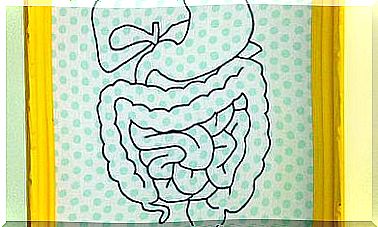The Importance Of Healthy Eating For Heart Health

It’s no secret that healthy eating contributes to heart health. If your goal is to prevent and treat heart disease, you need to make some dietary adjustments, especially when it involves regular consumption of unhealthy foods.
Currently, the importance of total cholesterol in predicting cardiovascular risk has been questioned. However, it is known that the habitual intake of fresh food can decrease the chances of cardiovascular disease. Below, we will detail some information.
Why does healthy eating support heart health?
There is little research linking the intake of healthy foods with good heart health. A study published in Current Cardiology Reports emphasizes that good nutrition lowers the risk of heart disease. In particular, it is desirable to ensure optimal intake of nutrients such as:
- Fibers.
- Complex carbohydrates.
- Vitamins.
- Minerals.
- Polyunsaturated fatty acids.
- Phytochemicals.
These substances, obtained from foods such as vegetables, lean meats, whole grains, fruits and other healthy sources, serve as adjuvants to prevent the increase in cholesterol and triglycerides. They have shown positive effects in preventing high blood pressure, stroke, cardiac arrest and other cardiovascular diseases.

Healthy eating to take care of heart health
There are many risk factors related to heart disease. While some are non-modifiable, such as age or genetics, others can be adjusted, such as diet. Next, we’ll share some strategies.
Increase your intake of omega 3 to protect your heart
The consumption of fatty acids is essential for reducing cardiovascular risk. They manage to improve the lipid profile. However, its most striking effects are those related to the modulation of inflammation.
This type of lipid neutralizes the inflammatory activity of omega-6 fatty acids, as explained in an article published in the journal Biochemical Society Transactions.
To increase the intake of this type of nutrient, it is necessary to consume oily fish, raw vegetable oils and oilseeds. However, care should be taken with the latter, as they are very caloric and can have a negative impact on energy balance.
Reduction of alcohol consumption
Until a few years ago, it was thought that having a glass of wine with meals could promote cardiovascular health. This has been denied and alcohol, in any of its varieties, has been shown to affect heart health and general well-being.
According to research published in the journal Alcohol Research, this substance causes an increase in levels of inflammation. Furthermore, it alters the state of the intestinal microbiota and increases the risk of metabolic diseases.
The consumption of these drinks is also harmful to the liver, increasing the fat associated with this organ. Visceral fat tissue is associated with a variation in the lipid profile and an increase in the LDL lipoprotein oxidation rate.
intermittent fasting
One of the fad dietary protocols is intermittent fasting. It offers advantages when it comes to improving body composition, being able to reduce inflammation and stimulate autophagy. These processes result in an improvement in health status in the medium and long term.
As if this were not enough, intermittent fasts are able to improve the lipid profile and are associated with a lower cardiovascular risk. This is established from the reduction of LDL lipoprotein oxidation. Furthermore, together with caloric restriction, it causes positive effects related to the modulation of oxidation.

Increased consumption of fruits and vegetables
Antioxidants are essential nutrients when it comes to ensuring heart health. They are present in large amounts in fruits and vegetables. They are responsible for the strong colors and bitter flavors. It is essential to take them often to prevent disease from developing.
With regard to cardiovascular health, resveratrol from grapes and lycopene from tomatoes are important. This is one of the reasons why it is preferable to prioritize the consumption of fresh foods over ultra-processed foods that lack this type of nutrient.
Heart healthy food
Ensuring a healthy diet is essential to improving heart health. It must be based on fresh, nutritious food. It is also important to maintain a varied diet, including plant foods and lean meats.
Fat consumption improves parameters that, in the past, were related to cardiovascular risk. However, it is important to choose quality fats, such as the omega 3 type. It is essential to avoid trans fats.
Finally, it should be noted that new dietary protocols, such as intermittent fasting, are able to improve heart health. In addition to other benefits, these dietary patterns can reduce levels of systemic inflammation, as well as oxidation.









